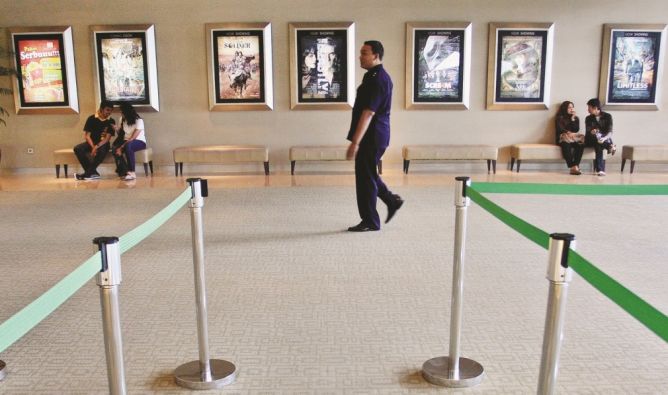medcom.id, Jakarta: At the end of last month, the Head of Creative Economy Board Triawan Munaf affirmed the film industry will be opened for foreign investment.
It means foreign investors are now allowed to invest their capital in the film industry, which is divided within three sectors: production, distribution and exhibition.
For the filmmakers, the policy is a breakthrough as local filmmakers often have problem in acquiring fund to produce films.
"The film industry has not been reformed since long time ago, something is protected but we do not know what it is. Foreign investment are not allowed, as the implication, the film production is low. With the opening of foreign investment, people (foreign investors) may invest in films and theatres," said director Joko Anwar when met by Metrotvnews.com in Plaza Indonesia, Jakarta, some time ago.
Joko underlined that public should not assume foreign investment in the film industry would hamper the development of local films, as currently the films that introduce Indonesian cultures are actually funded by foreigner.
"Who has been supporting the cultural films? Foreigners. Garin Nugroho's film for example. The financing came from Italians and Dutch," continued Joko.
Similar view was also mentioned by the renowned director, Garin Nugroho. Garin has been known for carrying Indonesian cinema to international stage. The director who had just released a romantic drama titled Aach.. Aku Jatuh Cinta (Aach.. I am Falling in Love) admitted that liberalisation is inevitable.
"Foreign investment is not a problem, but local protection is a must. Globally prosperous, locally prosperous. It should be the political formula of our government. In every aspect," mentioned Garin.
The view was also supported by the director of "Letter from Prague" (Surat dari Praha), Angga Dwimas Sasongko. He believes that foreign investment should not be perceived as cultural threats. The public and filmmakers should be intelligent enough in distinguishing the economic and cultural issues.
"The (film) industry is stagnant. We need to grow. With the revocation of film industry from negative investment list, it is a good opportunity. We should not mixed the issues. It is about economy. Culture is a different issue. I do not have any problems with quantity, what matters is development of quality," explained Angga.
"It is positive for us, having the opportunity to develop Indonesian film. We do not have many screens yet. Limited fund has interrupted the development of film industry. With the flux of foreign funds, we may grow," Angga added.
From the data released by FilmIndonesia.or.id, since 2008 to 2015, the most watched film was "Rainbow Troops" (Laskar Pelangi) with 4.6 million viewers. 4.6 million viewers are nothing compared to population of Indonesia which is more than 249 million people (2013 census data).
The low number of audience is influenced by various factors, especially on the number of theatres. As an archipelagic country with vast range of demography, the number of film theatres currently is unable to reach all people and regions. With foreign investment in the exhibition sector, it is not impossible that Indonesians in all regions could enjoy local films.
"Supporting regulation should be established. If (foreign investors) they want to open film theatres, (they) should be in the locations where there are no theatres yet," mentioned Joko Anwar.
Still based on the data of FilmIndonesia.or.id, in 2015 there were at least 119 full length films. The number of films would possibly rise when the number of theatres increases.
On local films protection, Triawan mentioned that it would be more relevant if it is conducted on a quota system, it is intended to prevent theatres from bankruptcy because they are forced to display local films.
"If it is forced, theatres would be lacking audience. We do not want to apply that, however we have the regulation. We will cooperate with all stakeholders to issue regulation. For example, starting from 10 percent (of the mandated national film quota). Then 20 percent. It is gradually increased. If it is too ambitious, the theatres would be empty," explained Triawan.
The local protection through clear and relevant regulation is the key to face liberalization. "Do we have any local strategy? Example, the Philippines. During Christmas and public holidays, the films in theatres are filled with locals. Do we have any local strategy? If not, we are only consumers," mentioned Garin.
Cek Berita dan Artikel yang lain di Google News



















